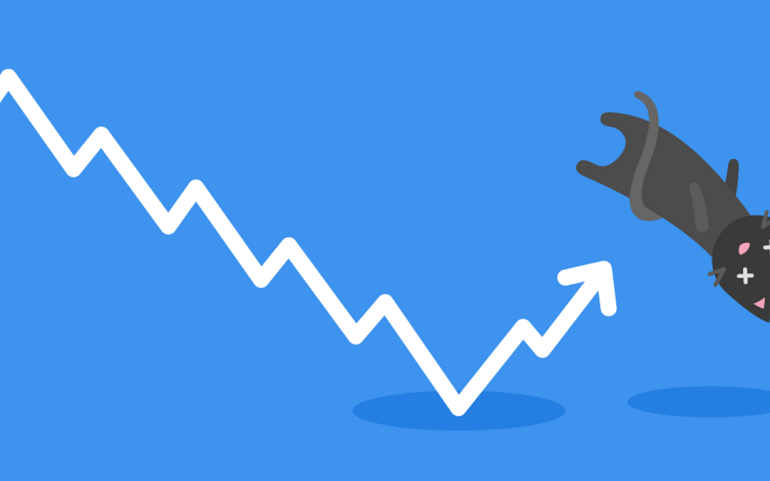Betting on the Start of a Bull Market or a Dead Cat Bounce?
Are markets on their way to recovery or do they show signs of hitting yet another bottom?
Should investors be putting money in the markets right now? While this late economic downturn has looked like a great opportunity for some investors to get “more skin in the game”, some investors may perhaps benefit from additional vigilance and expect a further tumble.
For weeks now equities have been relatively inexpensive, and markets have appeared to stabilize. This stabilization is largely due to the historic $2 trillion federal stimulus package signed by U.S. President Trump on Friday, March 27. This massive financial injection is directed towards helping the struggling U.S. economy fight the devastating spread of the coronavirus. This latest emergency aid package is the largest in U.S. history and holds provisions aimed at assisting American workers, family businesses, as well as industries struggling from the economic disruption as a result of the large-scale lockdowns across many American states.
As the number of unemployment claims across the U.S. continues to rise, the economy has held together by the very frail thread that is large federal debt. The U.S. stimulus bill’s centerpiece is that it will provide direct financial assistance to American citizens. Americans will receive said financial support through checks sent directly to them with the amount based on income.
Is this latest federal scheme enough to counter the 6.6 million surge in jobless claims recorded at the end of March? This latest rise in claims in a single week due to the COVID-19 fallout is much larger than those experienced during the Great Recession of ’08, perhaps suggesting that a potential recession is underway. Wall Street seems to think so too. This increase in jobless claims has stressed the resources of state employment offices, and as the self-imposed government quarantines continue, so does the probability of more layoffs. Local businesses have severely been impacted as they are forced to close down after being classified as unessential businesses, leaving their employees wondering if they still have jobs.
Things are looking brim as cases increase alongside layoffs. Air Canada is said to dismiss 5,100 employees due to an 80% flight cancellation for the month of April. General Electric has already axed 10% of its engine force, amounting to 2,500 employees. Cosmetics giant Sephora is also expected to terminate a number of its employees. As supply chains remain interrupted and stores are forced to close, retailers are likely to continue the trend.
The latest rallying of markets may, therefore, suggest that a temporary recovery of asset prices is the most likely occurrence, in other words, a dead cat bounce, which occurs after an extended bear market or economic decline.
While billionaires like Bill Ackman and Warren Buffett have invested billions more in the market during the crisis, some financiers suggest remaining vigilant on stocks who have gained from the virus. Jim Chanos, founder of Kynikos Associates, warns investors of betting on what he calls “virus stocks”, stocks that have seen an increase in value due to the enforced government lockdowns. The demand for companies like Zoom, Teladoc, and Clorox reported large gains simply on this latest surge in demand. Zoom shares soared 85% and Teladoc 94% with Clorox gaining as much as 15% as a non-durable consumer product. Chanos commented for CNBC on Tuesday, April 2 that “A lot of these companies are really not structurally growth stocks that are trading at 30, 40, 50 times earnings”.
It is possible that as the curve begins to flatten, and the virus subsides that these stocks may not look so attractive going forward as life returns to normal. These stocks may have difficulty justifying their sky-high valuations and eventually tumble once the virus outbreak starts to cool down. What is sure for now is that things are likely to get much worse before they get any better.
Note: All values are in US dollars, unless stated otherwise.

